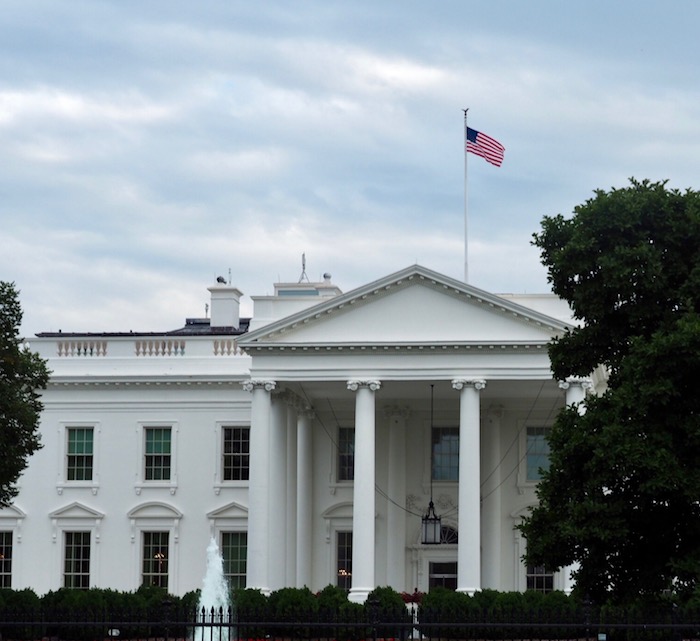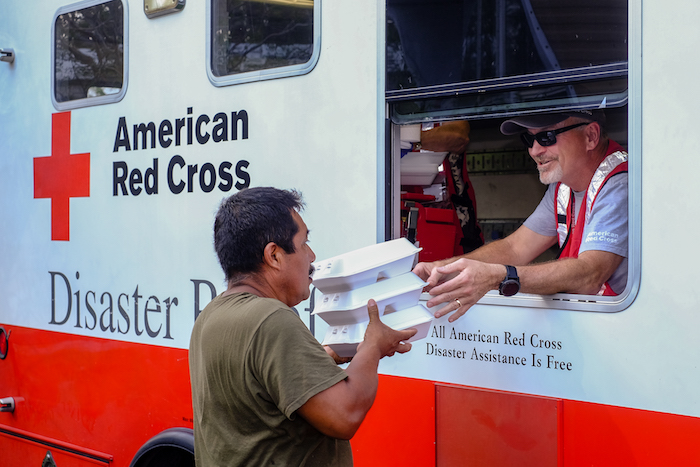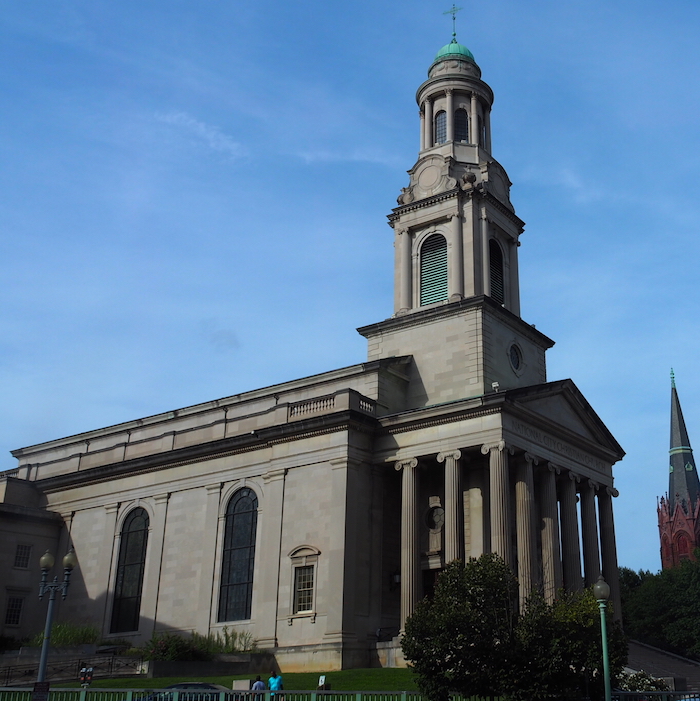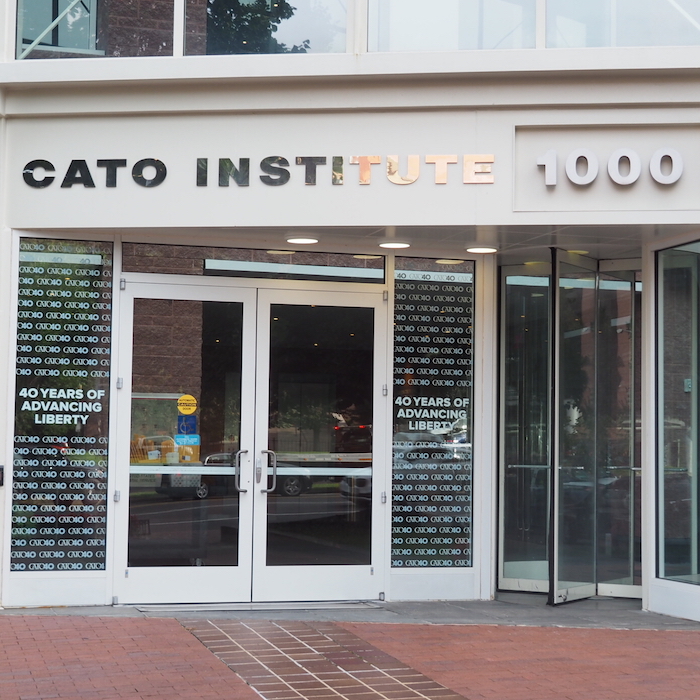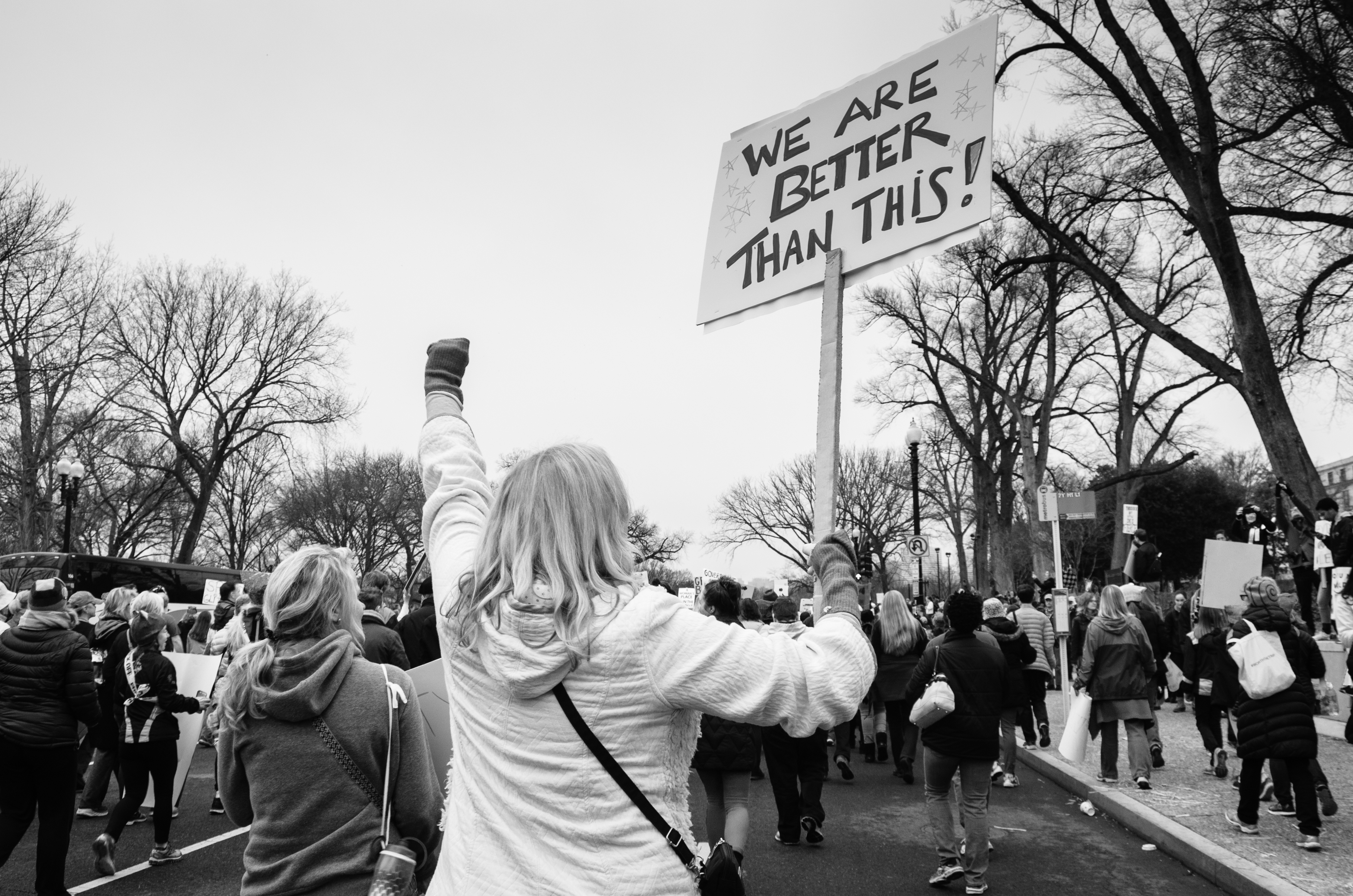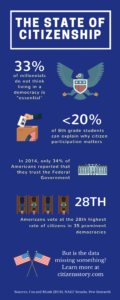Last week, I wrote about stepping out of my educational bubble and how much it taught me. This week, I spent 4.5 days in Detroit and 2.5 days in Mishawaka, Indiana. During this time, I got a crash course in how both race and religion impact people as citizens.
During college, at home, and the news I often find that many people don’t recognize how much race and racism still affect so many Americans’ lives. Admittedly, as a white person, I will never fully understand. My time in Detroit, though, gave me needed insight into the personal ways racism still harms many African-Americans every day.
In my conversations with people from the coasts, I also frequently find they don’t quite understand the positive role that religion and the Church play in other’s lives. Admittedly, I don’t either. But in the last few days, I feel like I have come to see why religion matters so much to people
Structural Racism:
For those who don’t know, Detroit is 83% black. Due to white flight and the government policies that encouraged it, many of the Detroit’s black population has remained in the city, even while its economy struggled tremendously. 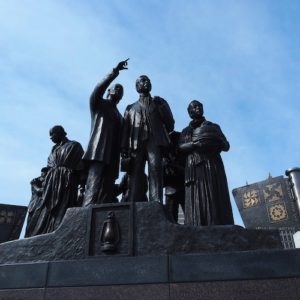 Contrastingly, many white, affluent people in the area live in the suburbs and work downtown. They don’t pay the property taxes the city has desperately needed and don’t necessarily have an investment in Detroit’s schools or community well-being. As Detroit’s schools have struggled, the people who have been hurt are disproportionately black and disproportionately low-income. This sort of structural racism didn’t surprise me. I’ve seen it in Boston, Philadelphia, and Chicago. It shows up in the civic learning gaps of students nationwide and the wealth gaps in cities such as Boston. It’s a civic problem, as well as a moral one, one that hurts democracy and makes equal engagement difficult.
Contrastingly, many white, affluent people in the area live in the suburbs and work downtown. They don’t pay the property taxes the city has desperately needed and don’t necessarily have an investment in Detroit’s schools or community well-being. As Detroit’s schools have struggled, the people who have been hurt are disproportionately black and disproportionately low-income. This sort of structural racism didn’t surprise me. I’ve seen it in Boston, Philadelphia, and Chicago. It shows up in the civic learning gaps of students nationwide and the wealth gaps in cities such as Boston. It’s a civic problem, as well as a moral one, one that hurts democracy and makes equal engagement difficult.
Personal Racism:
But this recognition about structural problems often doesn’t create an emotional reaction for people. Statistics often don’t tell our stories or convince people to change. This week, I heard the more personal side of racism, one that as a white person who grew up in the suburbs, I heard very little about in my life. One of my interviewees told me a story that brought tears to my eyes. He talked about when he was twelve and at a little league baseball game. Out of nowhere, a man in his mid-thirties – the parent of another play – screamed out from the crowd, “You little (n-word).” This man is now forty. Twenty-eight years later, he points to this moment as pivotal in his childhood and his ideas about America.
This story was just the beginning. Nicholas told me about how people used to cross the street when they saw him with dreadlocks, even though, he’s “the biggest nerd in the world.” Later that day, in an Uber, the driver, who was black, told me that recently, a rider referred to him as a “gorilla.” He said it took all of his self-control not to kick the man out of the car and curse him out.
The next day, Aisha told me about how growing up, neighbors would scribble racial epithets across her mailbox. Her parents put her in a different school district to avoid the people who did these sorts of things. And Adriel told me about when he realized that the three-fifths compromise existed, and how that undermined his feelings about our country. I spoke with eight black people in Detroit, and each had a story about racism hurting them.
Hearing these stories and learning about Detroit’s structural inequality in no way makes make me an expert. I have the luxury of not worrying about hearing these types of insults. I don’t have a childhood marred by the racist behavior of a grown man. But the last few days have underscored for me that when we talk about citizenship, when we talk about being a good community member, when we talk about respecting each other, we need to take race into account. We need to fight racism. Otherwise, the communities I’ve heard people describe and hope for can’t exist.
Religion and Community:
Before this week, I knew even less about religion and the role it plays in our country than I did about racism’s impact on American life. In Mishawaka, I saw firsthand how much God shapes people’s lives. And, even more than that, I saw how important the community the church provides for people is.
I spent Sunday at Granger Community Church (GCC), a mega church in Granger, Indiana. When I drove in, I was stunned that the place was a church. It looked like a massive, modern school. At Granger, I sensed the same connection and community there that I often felt in my high school. When I walked in, people greeted me and my hosts, asking us how we were and how we were feeling. In the atrium, I saw a cafe and a bookstore, where people talked to each other and found texts that helped them think about their lives. I watched as people streamed into the auditorium to pray. Downstairs, there were classrooms, play areas, and praying spaces for children of all different ages.
Two hours later, after speaking with congregants about the role God plays in their life as citizens, I sat through a service. The topic was marriage. Certainly, there were aspects of the conversation that I disagreed with. When the Pastor said that having Christ at the center of marriage is key, I felt myself push back. But, at the same time, much of what he talked about resonated with me. He discussed the importance of good, healthy habits in relationships. Then, he used passages from the Bible to illustrate good and bad habits. He showed a video of a couple who used religion to heal their relationship after an affair. Just as countless articles have helped me in my relationships, countless bible verses had helped this couple and many others.
The Religious Divide:
A conversation I had later that night confirmed the impact the Church has on people as citizens. One person I spoke with, an Evangelical Christian, talked about how God has shaped his idea of citizenship. He said, “Following what God has said naturally will make you a good citizen. The morals, ethics, and values that make a good citizen come from the Bible.”
We agreed on these ethics: hard work, honesty, love for others. When he later asked me my beliefs on God, I was frank with him. I told I him have struggled to find faith in my life. I explained, though, that I’ve turned to other sources, such as history and the classroom, to learn the lessons God taught him. He smiled and nodded, and then we talked about education reform.
The differences between me and this man were numerous. I’m an Agnostic from the East Coast who hasn’t attended a religious service in years. He was an Evangelical Christian from the Mid-West, whose goal is to raise children who love God. But we could still understand each other, understand we both wanted to be the best people we could be. I traveled America to learn about its people. For a lot of people, God, Christ, and their teachings have shaped their values and their communities. I wouldn’t be able to fully understand citizenship in America without talking to them.
Confronting Our Blind Spots:
When I spent time at Findlay Community College, I realized why I need to leave my bubble more. In learning so much about race in Detroit and religion in Mishawaka, I recognized that I have blind spots. I would define blind spots as aspects of society I don’t understand as well as I should, often because of who I am, racially, educationally, and socioeconomically. Blind spots and bubbles are closely related. But I think blind spots, in some ways, are easier to fill. We can read about issues we don’t understand. We can reach out to people in our communities who may be different from us. For example, I could have learned about religion in college by talking to religious groups.
I do think, though, that part of being a good citizen is at least recognizing one’s blind spots. If we at least recognize what we don’t understand about others, we will be more likely to listen. Listening is something that many people I’ve spoken with have mentioned we all need to do better. As one person at GCC said to me, “We could be better Americans if we shut up, quit talking, and start listening. Western culture fosters that. We (need to) stop debating for a minute, and listen to something on the other side, and see where they’re coming from. Then we can allow that to either bolster what we already believe or morph and change it for the better. Because we don’t have it all figured out.”
 Contrastingly, many white, affluent people in the area live in the suburbs and work downtown. They don’t pay the property taxes the city has desperately needed and don’t necessarily have an investment in Detroit’s schools or community well-being. As Detroit’s schools
Contrastingly, many white, affluent people in the area live in the suburbs and work downtown. They don’t pay the property taxes the city has desperately needed and don’t necessarily have an investment in Detroit’s schools or community well-being. As Detroit’s schools 
